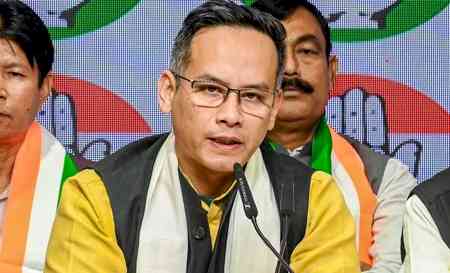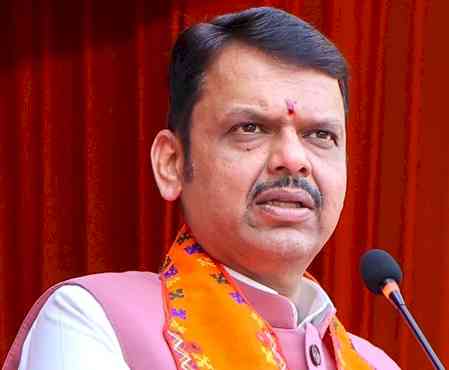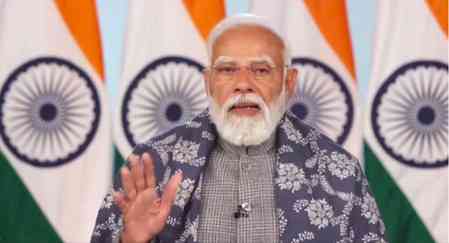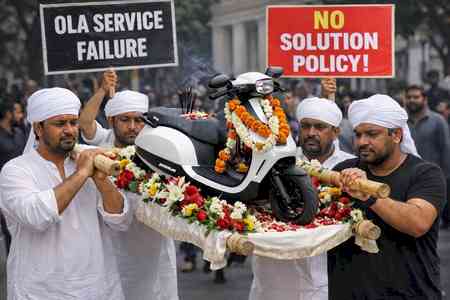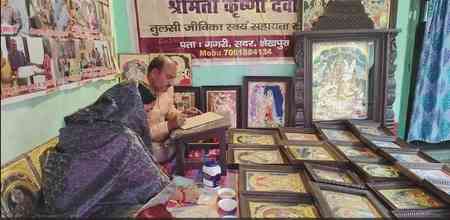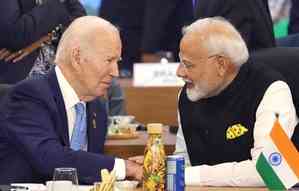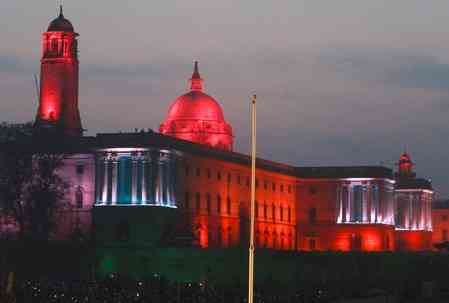Print News in Digital Age
Old-school Newspapers still rule: says ‘Newspapers are here to stay’ video campaign
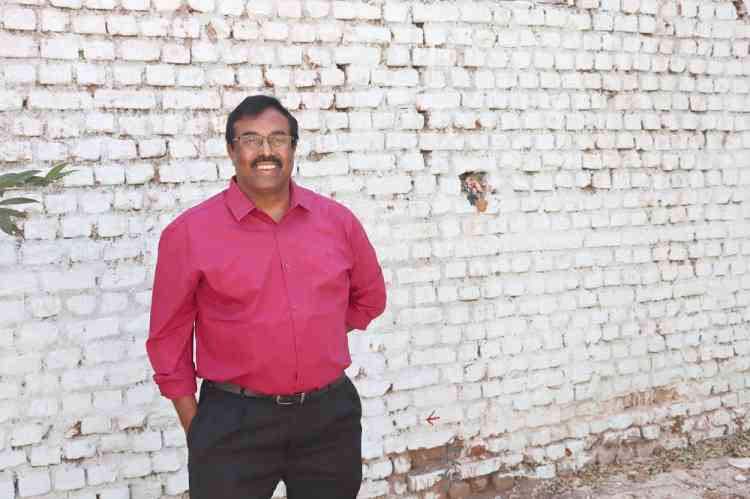
The campaign with short videos by bored news junkies catches eyeballs by dispelling notions about the survivability of print and about contracting COVID through newspapers
Hyderabad: In this day and age there is no doubt that Internet rules and it is a communication tool beyond compare. But it is not yet time to junk the old, traditional means of news consumption i.e. newspapers. The next-gen can say and pretend that print is old school and the podcasts, vlogs, social media, viral videos, etc. are the whole story.
But here is a campaign taken up by PR Pros and news junkies from Hyderabad city who say newspapers are still here… newspapers are here to stay! And mind you the video campaign is not by a media house or printing conglomerate but a PR firm, Solus Media. The video campaign for newspapers landed its makers a story in a leading reputed daily.
Internet is as likely to kill the newspapers as it is likely to kill the doctors and surgeons due to the large availability of knowledge online. It is impacting newspapers but not to the extent that newspapers are going to go away says D.Ramchandram, founder of Solus Media, the man behind the campaign. Solus Media is the oldest Public Relations firm in Telugu states founded in 1991.
Real journalism is in newspapers. Original and reliable news originates in the newspapers. The Bloggers, news aggregators, etc. just rehash the news but they don’t report the news. The news comes from the newspapers. The newspapers’ don’t sensationalize, don’t trick you with click-baits, and don’t force you to watch ads to get to the news, adds Ram.
Solus Media and the team developed a series of short videos as part of an initiative called #NewspapersAreHereToStay, a debate on the ‘Future of Newspapers’ - for and against.
The video series is of public debate(via a small video), ‘for and against the subject’ based on the comments, views, opinions collected by Solus Media or shared to them.
Many people in general and professionals, in particular, shared their opinion, views, feedback, comments which we are incorporated in the videos as video interviews as well as text, shares Ram.
Why Solus Media is doing this? The one thing common in Advertising, Journalism, Media and Public Relations is ‘Communication’. We communicate, build trust, tell stories and relay information to the public. We are inter-related and inter-dependent. We are partners in each other’s progress that is why we embarked on this initiative, shares Ram.
This initiative is aimed at inspiring the newspaper industry and peers in believing in Newspapers, he explains.
Ram gives several reasons why Newspapers should survive. His reasons are
01. Newspapers are the fourth estate, the 4th pillar of democracy.
02. Newspapers are the watchdogs of the society.
03. Thomas Jefferson, 4th President of the US said, if he had to choose between “a government without newspapers or newspapers without a government, I should not hesitate a moment to prefer the latter”.
04. Sixty lakh people depend on the Newspaper industry for their livelihood.
05. Newspapers are regarded by economists as a necessity of modern life.
06. Newspaper reading is an age-old habit and will never die, at least for next 30/40years.
07. Journalism is one profession that cannot be left to amateurs. The only place for professional Journalism is Newspapers.
08. Internet is full of news sites... but, they don’t report the news. The news has to come from somewhere. That somewhere is the newspaper, an integral institution in any functioning democracy.
Ram and his team have more reasons.
In the videos, Ram and his team present the facts simply and lucidly. They highlight the real issues, concerns and matters.
The videos present both viewpoints for and against the newspapers. The first video talks about Mr. Karri Sriram, Resident Editor of Deccan Chronicle: “Newspaper don’t just provide news, they are the voice of voiceless and question power. No Newspapers would mean no democracy”.
In the very next shot in the same video, it says “What happens if you stop reading the news? ‘Nothing”, as said by Rolf Dobelli, author of ‘Stop Reading the news’.
Quoting Rolf Dobelli, ‘News is bad for you and giving up reading it will make you happier’, says the video.
The video features Phillip Meyer, Professor Emeritus of Journalism and author of ‘Vanishing Newspaper’. Meyer is known for his remark: “the last newspaper will be printed in 2044”.
In another slide Dr. Kakarla Subba Rao, the doyen and the former Director of NIMS(Nizam’s Institute of Medical Sciences, an Institute found under the Act of Andhra Pradesh State Legislature) Hyderabad has commenting “I go mad if I don’t read newspapers for two days”.
Prof Dr. BK Ravi, Chairman, Department of Communications, Bangalore University maintains, “mainstream media will not disappear, it is a passing phase”.
One clip of short video mentions Arnab Goswami of Republic TV “Nobody reads the newspaper, it is down in the dumps” as saying in a debate on his Channel on #ChinaThrownOut.
‘First thing daughter does after seeing newspapers—hugs them as if long lost friends’, quotes the video a tweet @deepshikhasET.
In video number two, Gurmukh Singh Bawa, former Head of PR, Airports Authority of India, says ‘Life of Print Media is perpetual. Healthy body needs food, water…healthy mind needs content to read. Newspapers will remain as ever and get going’.
‘Newspapers have lost Rs 4500 crore in revenues during the first two months of the Covid pandemic. Despite the temporary setback, print organizations are not going to die. Instead, they are diversifying into digital ventures’, says Dr. Surbhi Dahiya, Professor and Course Director, Department of English Journalism, IIMC(Indian Institute of Mass Communication, an Indian media centre of learning funded and promoted by the Government of India).
‘Death’ is the future of the newspapers, says BP Padala, Founder of Roots Collegium, a Hyderabad-based educational institution. ‘Newspaper is becoming… ‘olds’ paper… when we getting news within minutes through electronic media…who will read newspapers next day’, says Anwar Ali, CEO of Mavericks Advertising. …frankly, my life would be a void without newspapers, observes Philip Joshua, Head, Corporate Communications, NCC Ltd.
The video series has also captured opinions of millennials and what they think about the business of selling of words to readers and selling readers to advertisers, i.e. newspapers.
‘Future of newspaper might end with our generation because we have apps that give us a minute to minute news on the go’, says Kavya Beerval, a millennial, who works with an IT MNC. ‘No form of digital news can have the same feel or experience that is possible by reading a newspaper. Newspaper is the greatest form of gaining knowledge’, opines D. Sravanthi, B.Tech student, VIT, Chennai. ‘Digital Media gives a choice to choose what one likes to read. It is convenient, crisp and handy. However the nostalgic feeling of holding and reading a physical copy of a newspaper is irreplaceable with any medium’, says Renu Deval, another millennial who is working as the Digital Marketing Consultant.
‘Newspapers are digital now and can be subscribed online much easier, saves trees too’, says Nivedita Indrajit, Millennial and Founder of Tarus Source Healing Space and Art Studio. ‘Newspapers, Press and Journalism will be past in future. It is the law of nature. Nowadays, the newspaper is not the voice of voiceless, it is just part of some propaganda designed by publisher or reporter’, observed a student who wants to be anonymous. ‘Newspapers are like mirrors of the society’, says Taruna Taurani, a Broadcast Journalist, working with one of the top Regional TV network in India.
Rakesh Dhannarapu, a young author of “101 Flying Secrets”, from Melbourne says ‘Newspapers have to become new. The millennials like me would want the newspaper to be minimalistic, yet dynamic. Because, nothing can beat bibliomania and the sense of touch and feel of a newspaper’. International Rhythmic Gymnast, Gundlapally Meghana Reddy says ‘Newspaper is just one of the many sources I use to consume information. But, it would be lowest in order of preferences after audio and video formats of news’.
Saima Afreen, a millennial journalist working with a national daily says ‘the newspapers shall live. Each morning the newsprint holds not just reports but a thousand possibilities’. G. Priya Vamshi, a millennial, a scientist working with ISRO, Bangalore says, ‘the present core readership will always be there but it is unlikely that a new generation of readers will emerge’. ‘I am for e-newspapers,’ says D. Vaishali Naidu, who is pursuing Master of Dental Sciences (Pedodontist). ‘Everything is online nowadays, even the news. So log in and read’, she adds.
When the Covid-19 pandemic hit the unsuspecting citizens of India sometime in March 2020, we saw an unprecedented lockdown with everything shut and everyone looking at each other suspiciously even for a silly sneeze. The life of D. Ramchandram of Hyderabad’s based Public Relations firm Solus Media came to a standstill and was as if it was congealed as it revolved around news and newspaper. Being in the media industry Ram’s day did not pass without reading 25-30 newspapers and magazines. With the world shut and difficulty to get newspapers due to the lockdown Ram was left flabbergasted. Added to it were the rumours doing the rounds about COVID spread through newspapers.
Online chats and meets with friends and fraternity threw up many thoughts and questions. Some saying life is better off without newspapers and some missing the newspapers as if it was a long lost friend. The thoughts and feelings manifested into an idea of a campaign to reiterate and reinforce that “Newspapers are here to stay”. The seasoned PR professional turned into an amateur video professional churning out videos for the campaign. The videos may not be done professionally but the subject touched the hearts of both the yea-sayers and nay-sayers alike.
“General public cannot tell the difference between legitimate and fake news. The credible and in-depth reporting, ease and convenience of the newspaper is unmatched. Our videos aimed to instill trust in the newspapers and the print medium and urged like-minded people to show their support for the newspaper industry. We wanted to say that newspaper matter and more so during the pandemic. Because they provide authentically, verified and balanced information which is so critical during the pandemic”, informs Ram.
“There are diverse views about the subject. But we tried to give a balanced view and shared both for and against views, opinions and observations”, says Ram. What started as a pass-time for a PR Professional forced to sit out at home soon caught eyeballs. Ram and his team Devraj Solanki, Shiva Katighar, Sandeep Valluri, Rakesh Dhannarapu, Anil Deval, G.Ashok Kumar, Vijay Kailash Beerval, Swapna Potta, Hima Shailaja Theerdhala, made 22 videos on the subject and circulated through broadcast groups and on the social media asking people to share their views, opinions, etc.
The videos also helped dispel rumours about Covid-19 spreading from the newspapers and highlighted the initiatives taken up by the newspapers to counter any such possibilities. The videos made rounds of the social media circuits of the media fraternity and the general public and won hearts and minds.
The times are hard for newspapers and yes COVID too impacted it with little sales and fewer advertisers but as they say, tough times don’t last… tough people do. What started in Rome in 59 BC and took the form that we know today in the 16th century has and will go on. As what newspaper do is not just disseminate news but also people get informed and educated reliably. That reliability is somewhat missing, in the newer forms of news consumption through the internet. Such is the situation that we now have a boom in fact-finding websites! I am not saying that people are gullible and not follow the newer forms of news but the printed word has a lot of sanctity, signs off Ram.


 cityairnews
cityairnews 
